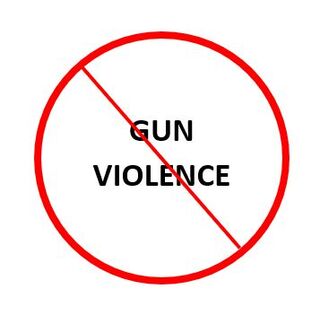Empathy
Misinterpreting Empathy
Sympathy, compassion, and caring are important but they are not empathy.
Posted May 31, 2022 Reviewed by Ekua Hagan
Key points
- Empathy does not mean interpreting the experiences of others, but sharing and understanding them.
- Empathy requires that a person verify what they think an experience was like from those who lived it first-hand.
- Those who create or vote for policies regarding gun violence need to let those with first-hand knowledge inform what should be done.

Empathy is a popular buzzword used in media, politics, and our everyday conversations. This is especially true as we watch the unfolding of horrific shootings in public spaces. Truly having empathy is more complex than common usage would lead us to believe.
What do we mean when we say we have empathy? The noted scholar on empathy, C. Daniel Batson, described eight ways of defining empathy, all related but distinctly different.1 In the literature on the psychology of empathy, the concept can be knowing the thoughts and feelings of others, physically mirroring others, imagining what it is like to be someone else, sharing the suffering of others, feeling distress when others feel distress, and even mimicking the emotions of others without understanding why.
Empathy is multi-faceted.
As more neuroscientific evidence of empathy has been shared, we can see that these ways of viewing empathy are parts of a broader and more complicated definition of empathy. This is especially true as we try to empathically understand the terror and pain we have witnessed from the recent horrific shootings in a supermarket in Buffalo, New York, and an elementary school in Uvalde, Texas.
Empathy is not just stepping into the shoes of another person, nor is it mirroring another’s emotions. It is not having compassion or sympathy for victims. While those are important aspects of empathy, they are only part of what makes us empathic. Empathy is sharing and understanding the experiences of others with them, not interpreting. Full empathy comes with verification that what I think you are feeling or experiencing in your life is indeed what you are feeling and experiencing.
Be humble about what you know.
There is humility in empathy; we cannot be all-knowing. We approach others with the awareness that we do not know what life is like for another person (or group) and that we cannot use only our own sensibilities to interpret others. That is why perspective-taking is one component, but it requires self-other awareness to fully move towards empathy. What does this look like?
Over the past two weeks, we have witnessed horrific shootings. All our empathic feelings have likely been touched. We may have done serious perspective-taking, that is walking in the shoes of others to imagine what it might have been like to have experienced the terror and pain of being shot at while going about with life’s simple tasks of daily living. But another piece of empathy is the self-awareness to realize that we can never fully understand the experience because we were not there, and we did not actually experience it. That does not lessen the power of empathy; it simply reveals how much more we have to learn about an experience from those who have lived it directly.
Ask about what you don’t know.
Empathy requires the verification of what we think an experience was like from those who lived it first-hand. If we really want to engage empathically with the victims and survivors, we need to know their feelings and understandings. They are the experts who inform and verify the accuracy of our empathy.
Are we listening to those who have first-hand knowledge? There are numerous groups that have formed over the years to share with us the direct experience and verify if our understandings are accurate.2
The Brady Center to Prevent Gun Violence was started by Jim and Sarah Brady after Jim was shot during the assassination attempt on President Ronald Reagan in 1981. Jim Brady was President Reagan’s Press Secretary. Unfortunately, we have other experts. Another gun violence survivor, Congresswoman Gabrielle Giffords, lived through a shooting in 2011 at one of her community events. As she recovered, she organized the group Giffords, dedicated to the work of saving lives from gun violence. Sandy Hook Promise was organized by families who lost children to gun violence from the attack on their elementary school in Newtown, Connecticut in 2012. And yet another school shooting occurred that profoundly impacted the lives of students. After the 2018 shooting at Marjory Stoneman Douglas High School in Parkland, Florida, surviving students organized the group March for Our Lives which is committed to advocacy and education to eliminate gun violence. There are more organizations and thousands more experts who have lost loved ones to gun violence or themselves survived horrific shooting encounters. We can and should empathize with them to try and understand.
Compassion is not enough.
It is not enough to share sadness or have compassion. That is only a piece of empathy. Those who make policies and those of us who vote for them need to consider these groups the experts and let them tell us what to do about gun violence. We cannot claim we are empathic if we do not engage with those who have first-hand experience and ask them to tell us what they think and know. We must listen to empathize fully. Then we will know how to help and what to do next.
References
1. Batson, C.D. (2011). These things called empathy: Eight related but distinct phenomena. In J. Decety & W. Ickes (Eds.), The social neuroscience of empathy, pp. 3-15. Cambridge MA: MIT press.
2. These are the websites of the four programs:
https://www.sandyhookpromise.org/
There are other organizations such as Everytown https://www.everytown.org/, and I encourage you to visit the websites of these groups as well.


